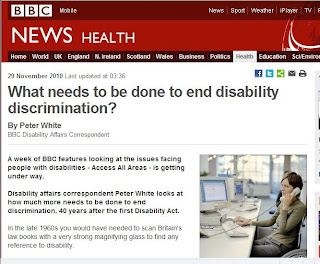Organisations are going to find it more of a challenge to hold onto key members of staff as the perception of work and employment changes. By using training and development as a tool for retaining staff, organisations can also benefit from increased staff attendance, greater company loyalty, improved skills, innovation and production.
Organisations that invest in their staff also tend to be happier and more productive places to work and have far lower employee turnover. Staff also pay greater attention to individual needs in both clients and co-workers. Although training costs time and money, so does the lack of it - and usually far more!
Since 2002 Creativedge Training and Development has been working closely with Travis Perkins on its Senior Management Development Programme (SMDP). As the leading supplier to the UK building and construction industry, Travis Perkins has approximately 1200 stores and branches nationwide and employs approximately 16,000 members of staff across its seven brands.
The SMDP, designed and delivered by Creativedge , was established to develop experienced branch managers for future wider roles including key support roles and regional director appointments.
Brendan Melvin, Group Manager - Management Development at Travis Perkins says "Travis Perkins is actively preparing today's supervisors and managers to fill the key positions of tomorrow. The SMDP, one of many learning interventions, has achieved true group wide representation and support involving employees within Travis Perkins, Keyline, C.C.F., City Plumbing, Wickes and Benchmarx " The SMDP target group is a mix of those colleagues who are considered ready for the "next step up" including those for future regional & group roles."
The SMDP programme has already proved to be very successful since it launched in 2002. So far, Travis Perkins has appointed a Managing Director and 27 Regional Directors from this target group and 30 plus promotions for other regional & group roles, as well as larger grade branch and store roles.
By having ongoing training programmes for employees, organisations are better able to fill vacant positions by recruiting from within which is both cost-effective and practical for an organisation. Internal or current employees can make the best available candidates because they are already familiar with the company and already successful within the organisation.
Giving current employees more opportunities for advancement can be a win-win situation for everyone. Not only does it promote employee loyalty but more importantly, it reduces any risk from hiring externally. A failed external senior hire can be one of the most expensive costs a business can face, with the cost of lost productivity and lowered morale from employees who feel they have been 'bypassed' for promotion and have missed out on an opportunity to progress within the organisation.
However, training and development isn't just about 'one-offs' but rather a continuous journey so that employers and employees can keep up with the constant market changes.
A positive organisational culture only comes through a respect for and an investment in your people, not only in terms of financial rewards but by offering them the best working experience, one that offers security as well as progression and personal growth.
About Creativedge Training & Development- Creativedge specialises in high-performance management, leadership and personal development training and provides a unique range of creative, yet highly pragmatic development solutions that underpin employee engagement.
The Creativedge Portfolio of training solutions, offers enormous flexibility for developing people and includes Rapid Result® 90-minute bite-sized training sessions, an online resource centre, blended ILM qualifications, bespoke development programmes and personalised coaching, plus lots more. Source: Training Press Releases
If your company / organisation is looking for a Senior Management Development Programme (SMDP), we at jml Training and Consultancy have been delivering these now for many years.
Listed below are a few comments from participants at jml Training SMDP training:
Feedback from a Senior Managers Development Programme
'The biggest benefit has been the improvement in my IPS skills and the impact this has had on my team'
'It has provided me with the opportunity to reflect on my approach to work and I am making the time to relate the learning to further improve my work practice'
'I feel I have grown and positively changed during the course of the programme'
'I was most surprised by how much all the participants changed and blossomed over the duration of the programme'
'I find I am really listening to people now and my level of self awareness has increased'
'I feel so much more self-confident and feel I have much more presence'
'I now feel much more able and confident to work towards a win-win situation at work not a win-lose'
'I am most pleased that I attended the full programme despite work pressures, it was well worth juggling all the demands'
'I delegate much more now and can see an increase in the confidence and ability of my team to deliver'
Find out how jml Training can help your organisation develop in 2011 by visiting our website at http://www.jml-training.com/














